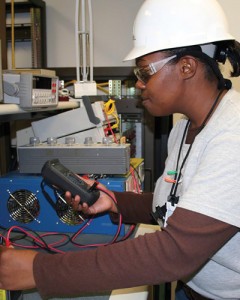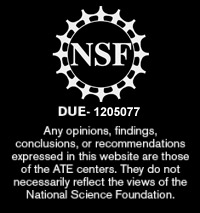
RCNET
Regional Center for Nuclear
Education and Training
Fort Pierce, FL
www.gonuke.org
Contact
Kevin Cooper
Principal Investigator (PI)
kevin@gonuke.org
(772) 462-7546

RCNET Readies Nuclear Technician Workforce Pipeline
RCNET’s nuclear program enrollments have increased by 200% since 2010. Graduation numbers have grown from 362 in 2010 to 596 in 2014, a 164% increase. In total, 2,447 students have graduated from partner institutions. More than 1,900 RCNET-affiliated program graduates have found work at one of RCNET’s 91 industry partners since the inception of the grant.
RCNET has also developed merit-based competitions to increase awareness about nuclear careers. The enrollment of 650 high school students in nuclear programs indicates RCNET programs are fostering interest among younger students.
In response to a 2015 survey of nuclear industry trainers, RCNET has teamed with 10 nuclear technician founders and leaders to create a biography textbook that encourages graduating technicians’ “ownership” for their profession.
RCNET Expands Breadth of Technicians’ Knowledge & Skills
RCNET’s curriculum helps relieve nuclear educators, individual trainers, and subject-matter experts from the burden of creating academic content. RCNET’s curriculum frees them to focus on their core mission: teaching. As a result, retention, graduation, and employment rates have increased among RCNETaffiliated programs. By continuing to offer professional development on applying data to these key metrics, RCNET expects more optimization going forward.
To date, 44 two-year colleges have utilized RCNET’s curriculum repository. These colleges educate more than 1,500 nuclear technology students each year.
Nuclear fields beyond the energy sector remain hotbeds for job opportunities with 65,000 openings expected by 2030. Key partnerships formed at the academic, agency, and industry levels capitalize on this opportunity and help ensure the US has a skilled nuclear workforce going forward. To create a more sustainable and extensive platform that addresses future workforce needs, RCNET is expanding its curriculum development to cover the nuclear-related aspects of other fields and tailoring its core curriculum to meet these emerging needs. These fields include environmental management, manufacturing, as well as life and plant sciences.



